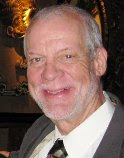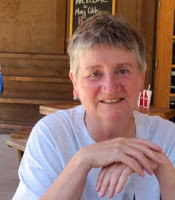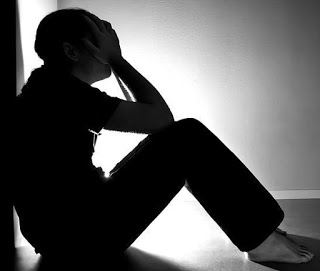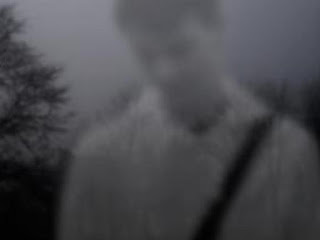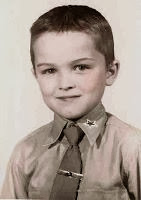‘I believe in one god, the Father Almighty, Maker of Heaven and Earth, and of all things visible and invisible.’
So begins the Nicene Creed which I learned in Sunday School and for a while repeated most Sundays of the year. But sometime in my ninth year I had a kind of epiphany, accepting that I didn’t believe a word of anything that went along with organized religion. I continued to accompany my mother to church, just being supportive, but determinedly kept my mouth shut when we proclaimed our religious beliefs of which I had, and still have, absolutely none.
So I never say ‘I believe …. ‘ using the words to denote, as Voltaire puts it, believing when it is beyond the power of reason to believe. That kind of belief is, to me, as cast in stone as sexual orientation. I cannot make myself believe something I don’t believe any more than I can make myself be straight. I can pretend, as so many of us did once upon a time when we played it straight, I can say the Creed along with the best of them, but I cannot make myself believe.
I do use those words, as many people use them, to mean that I have seen or heard enough evidence to believe that, based on sound reasoning, something is true. This, according to many definitions, puts me firmly in the skeptics’ box – relying on the rational and empirical: valuing thinking and seeing rather than making that blind leap of faith to belief.
In my own, albeit skeptical, way, I believe many many things.
For example: I believe that history will judge Obama well, for his sincerity and constant struggle to do what he truly believes to be the right thing. (Though he might do well to follow Churchill’s plan; he said he knew history would be kind to him because he intended to write it.) And, speaking of Sir Winston, I believe that had I ever met him I would probably have disliked him. If he were running for office in November I doubt I would vote for him. Nevertheless, I believe most sincerely that I am forever in his debt. Without his inimicable stand against the Nazis, I believe that my life would have been very very different; quite possibly a lot shorter. Similarly, I believe I would not be casting my vote for Teddy Roosevelt with his bluster and his gunboats, but I also owe him a huge debt of gratitude. Without his foresight in initiating the National Park system, I would never be able to appreciate the magnificence of nature that was once this country. It would all be unrecognizable, long ago torn away by mining and drilling, or covered in concrete jungles of shopping malls and mansions. And these realizations make me believe, in turn, that few people – yes, even politicians – are an influence solely for good or evil, though there are some notable exceptions. Life is endlessly complex, as are the people and issues we encounter in it.
My most vehemently held belief, right now, is in the reality of global climate change. As I see it, everything else pales by comparison. What does it really matter that we finally have gay marriage, or that Syria is a failed state, or that, in spite of the efforts Obama is promising to make, we are so far from getting fire arms under any kind of meaningful control in this country? If we continue not only to ignore but actively to deny that climate change is now in our faces, what does anything else matter? It will change the lives of every single person on this earth. How anyone cannot see it is a total mystery to me. 2015 was example enough for anyone. It was the hottest year on record over the entire world in 135 years of modern record-keeping. Global sea-
level surged to new heights. Glaciers retreated for the thirty-first year in a row. Record greenhouse gases fill our atmosphere. And if global statistics don’t impress you, aren’t we watching it all happening almost every day on our televisions? Tornado alley now stretches from the Gulf to Canada, and every year it is harder to define ‘tornado season’ or ‘hurricane season’ – we simply have to expect anything anywhere anytime. There were more tornado-related deaths in this country during December of 2015 than in any previous December on record. Merry Xmas, all you deniers!
Almost more maddening, to me, than such idiots as those who toss snowballs about as proof against global warming, are those who acknowledge its existence but insist that it is a completely natural climate swing, such as there have always been, and therefor of no consequence. What?? During the last ice age, which I think we can all agree was not human-induced, the area that is now New York lay under a sheet of ice a mile thick. Should mankind be around for the next ice age, which I personally doubt, will we all shrug our shoulders as the wall of ice approaches and ignore it simply because it’s a purely natural phenomenon? Surely we need to decide how we are going to survive global climate change rather than indulge in endless wrangles over the cause.
So does this mean that I believe climate change will cause the human race to be just one more species that goes extinct? There would be some justice in that, as we are, ourselves, causing the extinction of so many. But I cannot claim to believe that, per se, because there are simply not enough facts available. I think there’s certainly some chance of an extinction in our relatively near future, but possibly not. We have survived many disasters: plagues and pestilence, wars and famines, earthquakes and volcanoes. But seeing that an estimated 99% of all species which ever existed are now extinct, I certainly believe that we will not go on forever.
One day we will be gone, our Little Blue Dot will heal itself from all our depredations, and humankind will leave no more than a hiccup in the geologic history of Planet Earth.
That, I, proud skeptic, do believe.
© January 2016
About the Author
I was born and raised in England. After graduation from college there, I moved to the U.S. and, having discovered Colorado, never left. I have lived in the Denver-Boulder area since 1965, working for 30 years at IBM. I married, raised four stepchildren, then got divorced after finally, in my forties, accepting myself as a lesbian. I have been with my wonderful partner Betsy for thirty years. We have been married since 2013.
